This election season, underrepresented groups in politics are making waves on the campaign trail – from women to minorities to members of the LGBT community. Another group is making its presence felt as well: young Americans.
The prime example is 28-year-old Alexandria Ocasio-Cortez, who upset Rep. Joseph Crowley in the Democratic congressional primary. Assuming she’s elected in November, Ocasio-Cortez would become the youngest member of Congress – taking that title from upstate Rep. Elise Stefanik, who was first elected at age 30.
But they’re just two of many millennials in New York who are not waiting their turn. Each year, City & State identifies 40 members of the next generation – all under the age of 40 – who are already leaders in elected office and in state offices, in labor and in business, in advocacy and in academia, in government affairs and in journalism.
We profile the behind-the-scenes figures crafting groundbreaking legislation, shaping public opinion and driving the news cycle. We recognize young labor leaders battling in the wake of the U.S. Supreme Court’s Janus decision, business representatives helping their constituents compete and young lawmakers shaking up Albany.
We’re pleased to introduce the 2018 Albany 40 Under 40 Rising Stars.
Alyssa M. Lovelace
Director for Public Policy, New York State Association of Health Care Providers
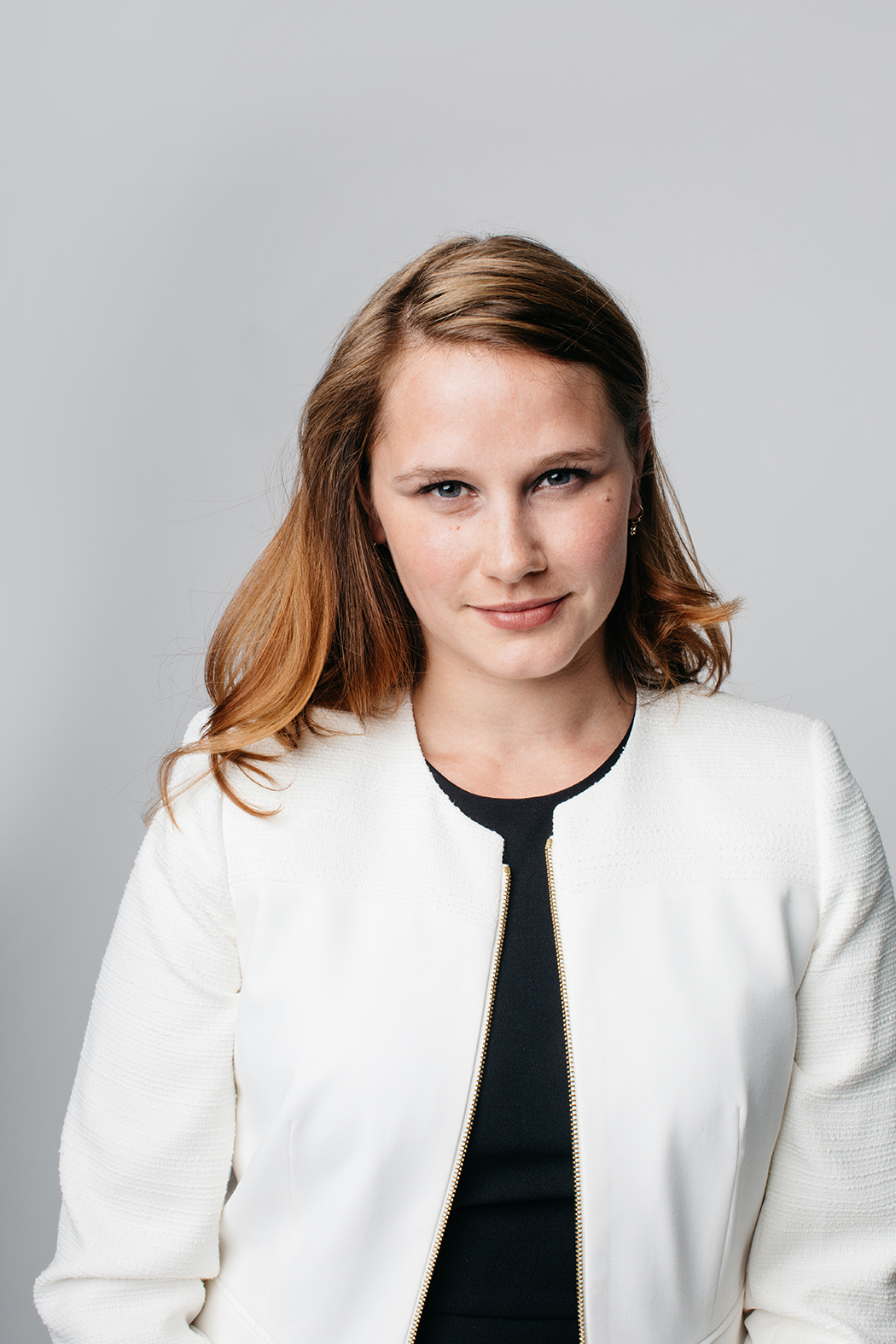
Alyssa M. Lovelace thought she would be a journalist, but ended up switching her college major to public policy when she interned at LeadingAge New York, a nonprofit representing health care providers.
“My grandparents raised me, so for me it’s really important that I give back to the people who might not necessarily have a voice. … I watched them as they aged, went from living independently at home to a nursing home and ultimately hospice,” she recalls. “It’s really important to me that the state and consumers and the public are aware of the long-term care industry because eventually we’re all going to be there.”
Now as the director of public policy for the New York State Association of Health Care Providers, she works to defeat or advance relevant legislation and meets with her members regularly. “Right now, we’re doing a lot as a result of the 2018-19 budget, and we’re already preparing for next year,” she says. “We’re all just trying to figure out how to work together in this ever-changing health care environment that the state has created since Medicaid redesign went into effect.”
Balancing her work and family life is a struggle every day, she says. “Fortunately, my kids are older, so they do know when the legislative session is, and they do know that I work long hours … and I’m able to work from home when I need to when my kid is sick, which is lovely. After session, I try to take some time off and be with them.”
Melinda Mack
Executive Director, New York Association of Training & Employment Professionals
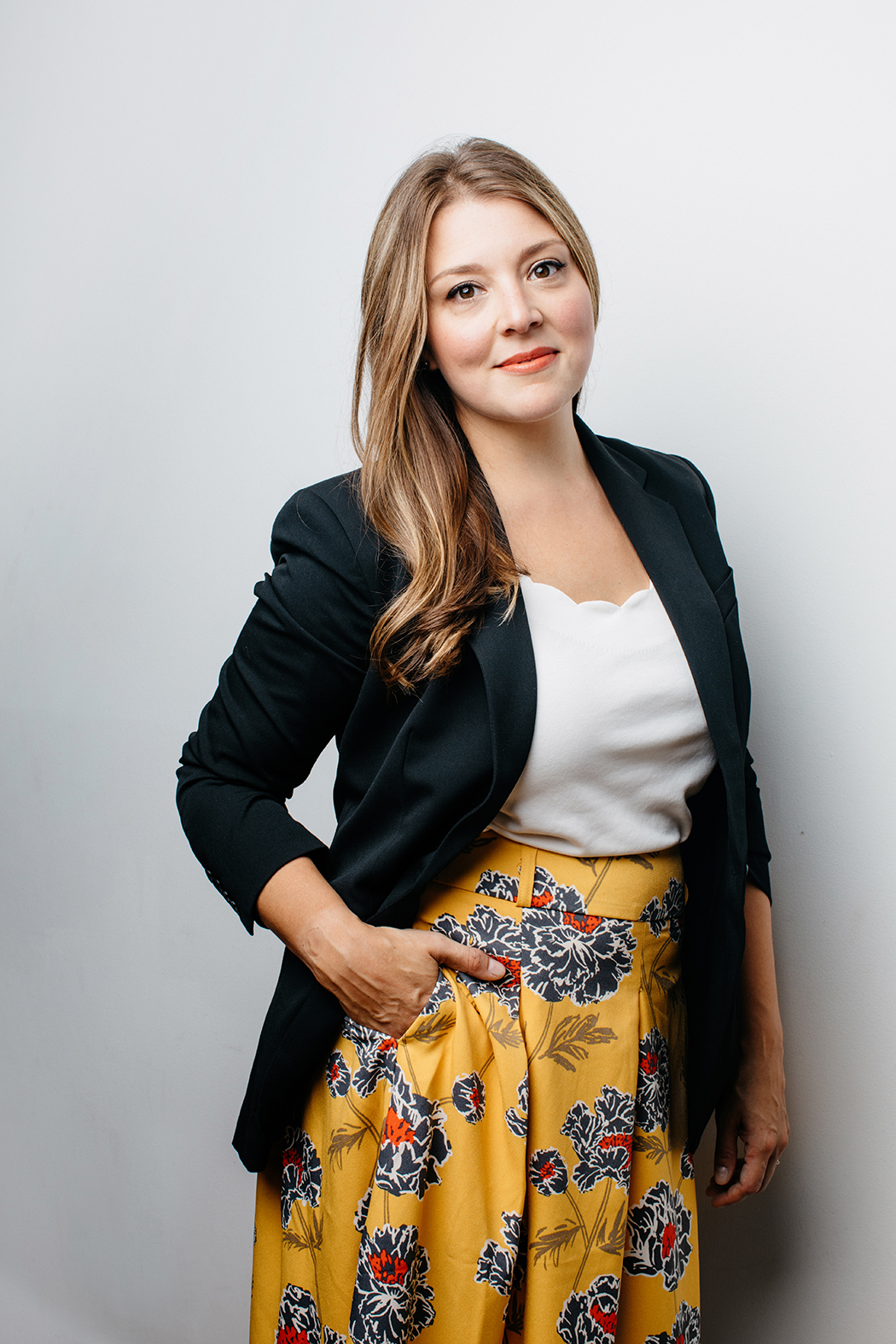
For Melinda Mack, it was not part of her “master plan” to become executive director of the New York Association of Training and Employment Professionals. She previously worked for former New York City Mayor Michael Bloomberg and at CUNY, among other places. “This weird mashup of skills that I’ve attained over the last decade or more sort of led me to this job up here in Albany,” she says.
Originally from Buffalo, she went to school in Albany and then worked for seven years in New York City, giving her an overarching view of the state. She says her biggest accomplishment was working with the governor’s office this year to get $175 million in the state budget for workforce development, the largest investment in the state’s history.
“That was a five-year effort, to bring together a really diverse set of stakeholders – anywhere from economic developers and chambers of commerce to people who provide frontline education and job training services – together to say we all care about this. It’s not just one faction of one group.”
The group is looking to tackle the issue of child care next. “That’s part of this approach of really looking holistically and bit more out of the box, and Albany’s not known for an out-of-the-box mentality,” she says. She has fostered accommodating workplace policies as the mother of three kids under the age of 7. “We’re really a 24/7 shop, but we also are flexible enough … that I can run out to a kid’s thing.”
Laura Manno
Director, Government Affairs, Charter Communications
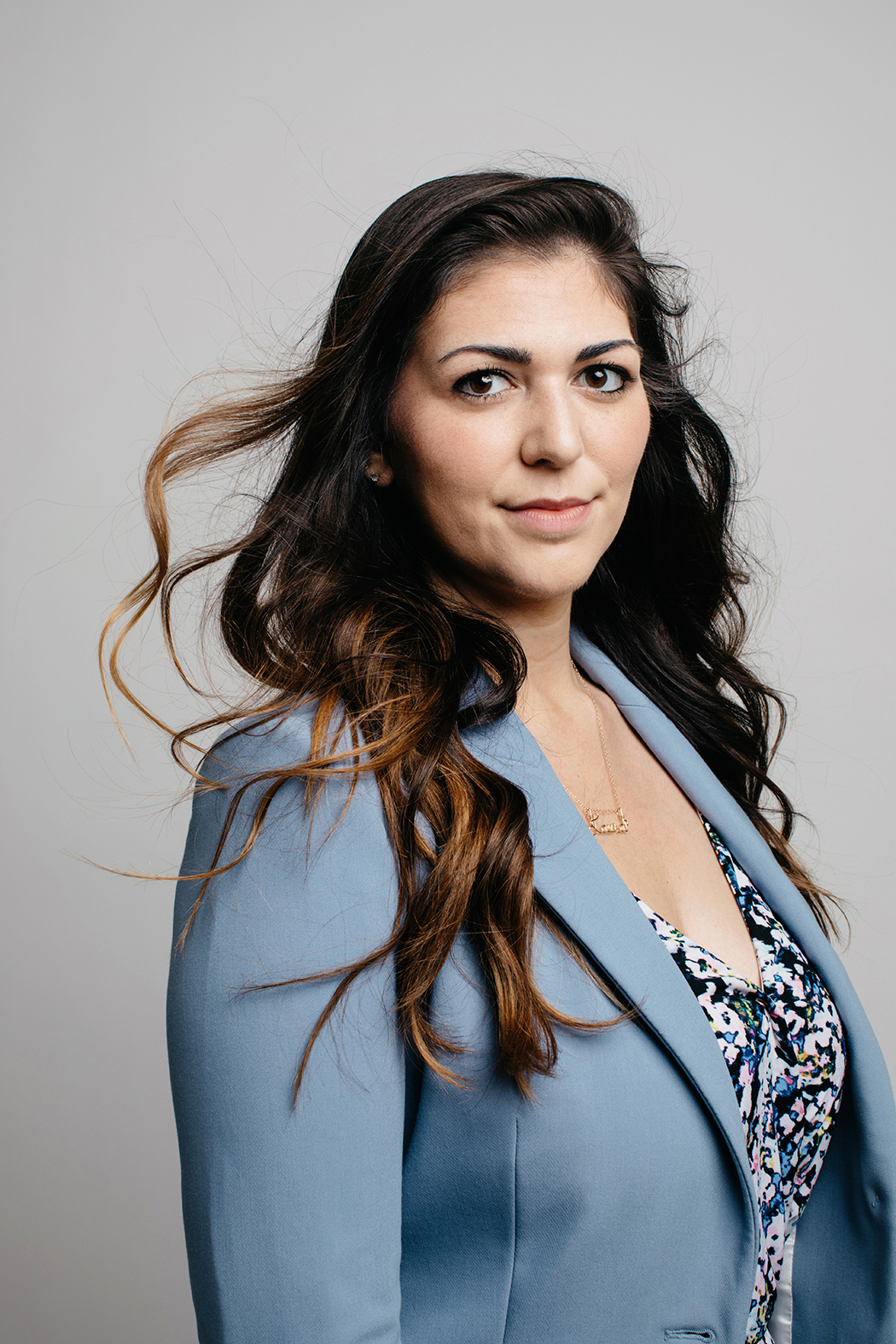
Laura Manno intended to stay in social services until she had an internship at a refugee settlement center in Albany, where she shifted gears to government work.
“I found – equally fascinating and frustrating – the interplay between all of the work we were trying to do for the clients and how policy impacted every single step of the way,” she says.
After her internship ended, the native Long Islander applied for an administrative position with the state Senate Democrats, hoping to get her foot in the door. But state Sen. Andrea Stewart-Cousins, whom she met during the interviews, told her there was more she could do, and encouraged her to apply to another department.
Manno ended up becoming an external relations associate for the Senate Democratic conference. Over nearly five years, she worked her way up to being deputy director and left as director. She also ran state Senate campaigns for Terry Gipson and Adam Haber.
Manno has since transitioned to her first private sector job as director of government affairs at Charter Communications. Her intimate knowledge of state government comes in handy as she handles policy development, legislative lobbying, community investment and engagement, and regulatory compliance in New York City and New York state.
“I’ve been fascinated by having the experience to learn from the other side exactly how the policy that I had been working on in the government and all of the political aspects of that, how that interplays with the actual execution of a business,” she says.
Jay Martin
Chief of Staff, State Sen. David Carlucci
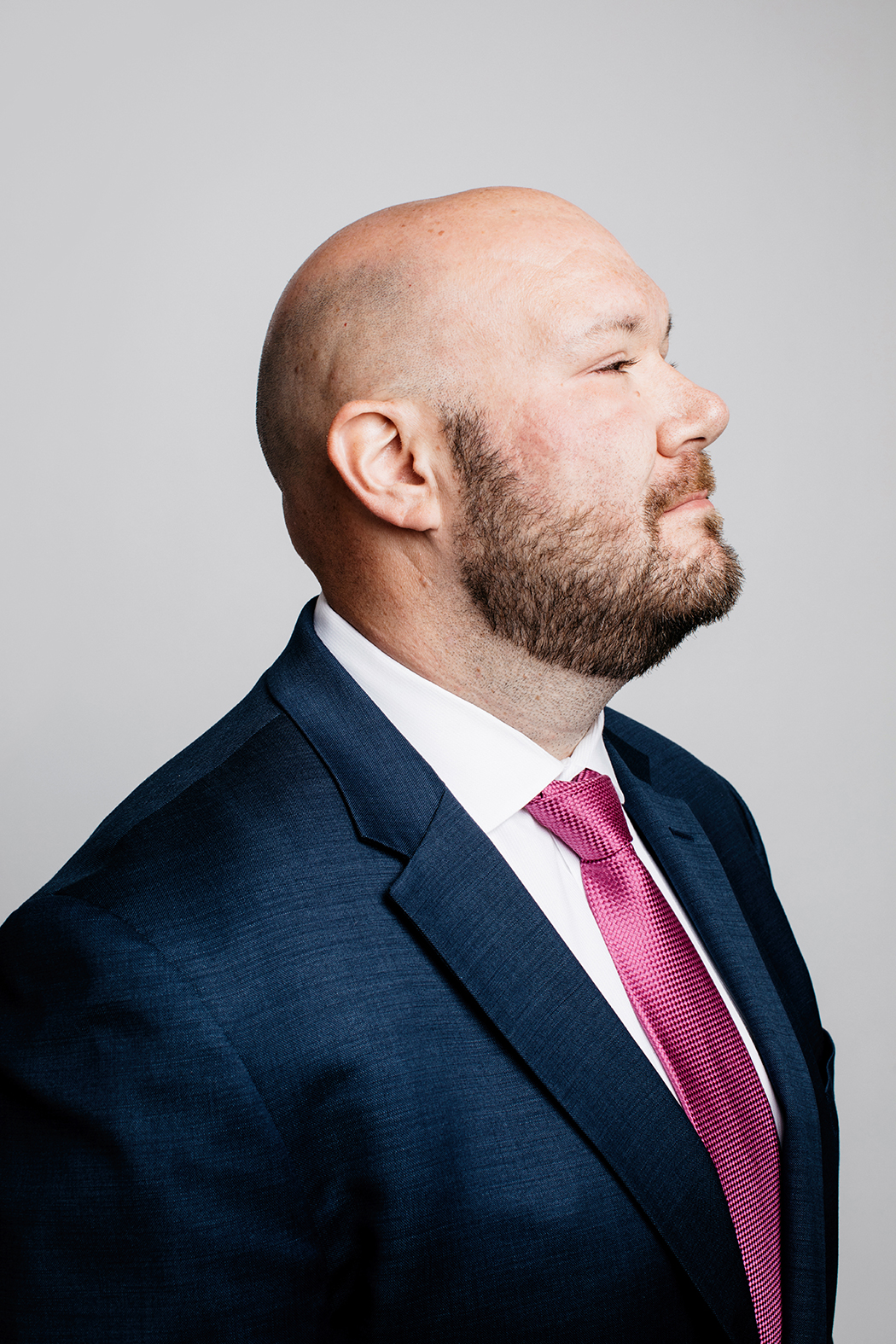
While some 10-year-olds might be interested in sports or watching TV, that was the age Jay Martin started attending political rallies. His interest in politics was spurred by growing up in a union family in Pennsylvania.
“I saw the importance of organization and organizing and community outreach and how it could help people,” says Martin, who was raised by a single mother with the help of his grandparents.
Martin worked on his first race when he was 18, and by 2007 moved to New York, working as an executive aide to state Sen. Jeff Klein. But Martin says he's most proud of the work he has done on Lauren’s Law as chief of staff to state Sen. David Carlucci. Carlucci sponsored legislation last year that made permanent the provisions of Lauren’s Law, which requires driver’s license applicants to complete the organ donor registry section. “Granted, it seems like a no-brainer, but to me it’s indicative of a commonsense approach to government and it’s an issue that generally you can correlate to how it helps people,” Martin says.
Despite the divisiveness in politics today, Martin believes most people in government are trying to do good. “For every one or two politicians that are arrested and go to jail, there’s hundreds that are actually really trying to help people,” he says. “There’s staff behind those people who are really trying to help people, who work very long hours, and try very hard to do the best they can to improve people’s lives.”
Jeffrey Mirel
Executive Vice President, The Rosenblum Cos.
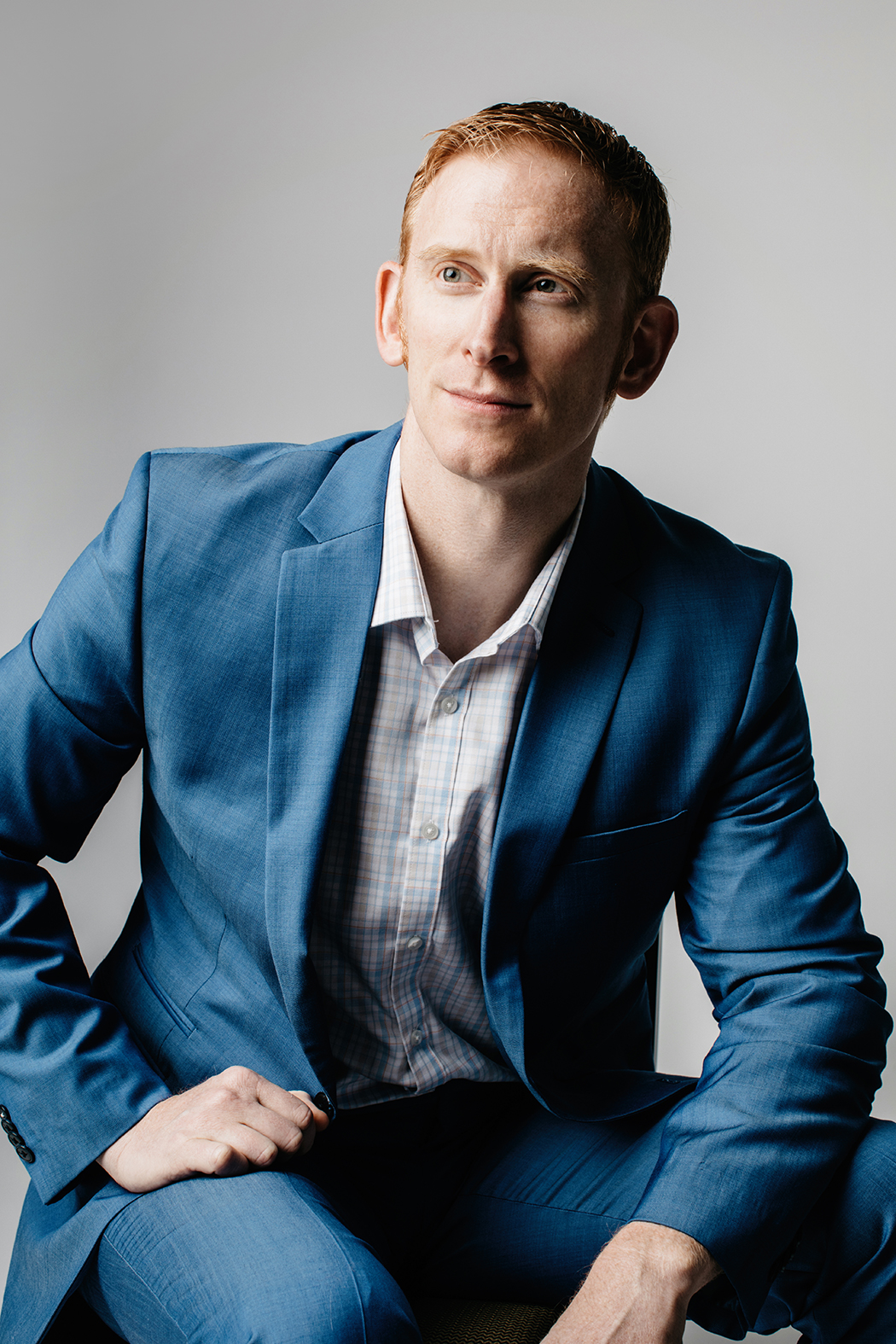
When The Rosenblum Cos. designed the interior of the News Apartments in Troy, team members wanted to extend the “historic narrative” of the building, which used to house the Troy Record, says Jeff Mirel, the company’s executive vice president. They incorporated old newspaper boxes into the interior design, and used a color scheme of cyan, magenta, yellow and black – a nod to the traditional colors used in newspaper printing.
“We wanted (the design) to energize and remind at the same time,” Mirel says. “It wasn’t just a place that made newspapers – this was really the cultural heart of Troy.” While working on the project, Mirel learned that so many people in the community have a connection to the newspaper, whether they used to deliver newspapers, or their father worked there as a pressman, or their mother worked in advertising.
News Apartments, which includes residences, boutiques and restaurants, is designed to drive revitalization in Troy. It’s the kind of project that Mirel describes as “connective tissue” in a community. Revitalization could mean “urban infill,” Mirel says, such as finding a way to fill the empty spaces where a building once stood, and it could mean “thinking through what folks will need down the line.”
“I am a diehard regionalist,” he says, adding that he hopes to foster sense of connectivity between Troy, Schenectady, Hudson, Saratoga, Albany and each cities’ various suburbs. “The unifier in my personal career track has always been being involved in the community … in placemaking.”
Katie Neer
Attorney, Greenberg Traurig
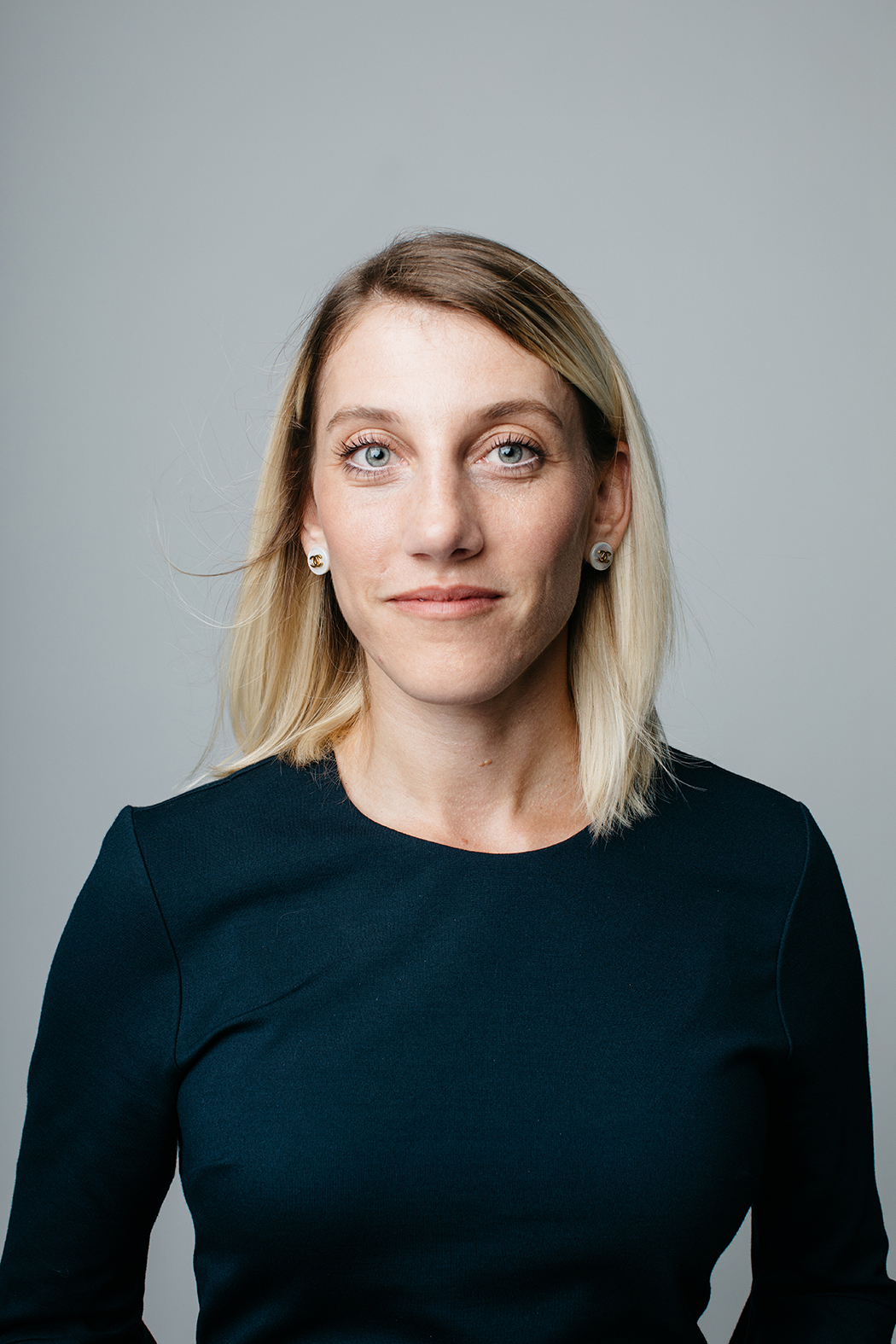
Growing up in Baldwinsville, just outside of Syracuse, Katie Neer always knew she wanted to become a lawyer. “I used to want to know everything,” Neer says. “The closest thing to knowing everything would be to know what the rules are … that’s the law.”
During her junior year at the University at Albany, when she started an internship with the Assembly, Neer realized she was interested in working at the intersection of law and government. “It was then that I caught the government bug,” Neer says. “There are a lot of layers and dynamics in that world, and it fascinated me.” Neer says the hands-on internship gave her a deeper understanding of state government and its intricacies, from the politics of running for office, to the politics of governing, to the politics of policymaking.
As an attorney in the Government Law & Policy Practice at Greenberg Traurig, Neer works on cybersecurity and labor issues, among other areas. The practice focuses on guiding clients and solving problems for them. “At the end of the day, we want to find a path forward for (a) client,” Neer says. “We want to help our clients in navigating government.”
Neer, who lives in Saratoga, says she has always enjoyed playing sports and participating in athletic events. She is currently training for a triathlon along with her husband and a group of friends. Their team, called Empire Endurance, heads to Montreal in September for the competition.
Yuh-Line Niou
Assemblywoman

They say if you want a friend in Albany, get a dog. So Assemblywoman Yuh-Line Niou did, and travels to Albany from her lower Manhattan district with her pet in tow. Her dog died this year, but was quickly replaced by Samson, a German shepherd and Akita mix whose government service can be tracked on Instagram @samson_the_shepkita.
Samson is popular in Albany, but so is Niou, and it’s easy to see why. She’s committed to collaboration, and is quick to compliment other legislators on their work. Assemblywoman Michaelle Solages’ bill to regulate donated breast milk, Assemblywoman Linda Rosenthal’s bill to not tax tampons, Assembly Speaker Carl Heastie’s assistance creating the Asian Pacific American Task Force – Niou mentioned all of these before talking about her own work that she’s proud of. One of those is bringing in more state funding to naturally occurring retirement communities. “It’s really important that we keep our seniors social and involved in the community, because it’s very much preventative care,” she says.
Niou only moved to New York in 2010, after living in Washington state, where she worked in the legislature and lobbied for anti-poverty programs. When former Assembly Speaker Sheldon Silver was convicted, Niou ran to replace him and won the seat in 2016. “People talk about a ‘blue wave,’ people talk about more women running, more people of color running, young people running,” she says. “I like to think of myself as somebody who kind of paved the way for that to happen.”
Patrick Orecki
Research Associate, Citizens Budget Commission
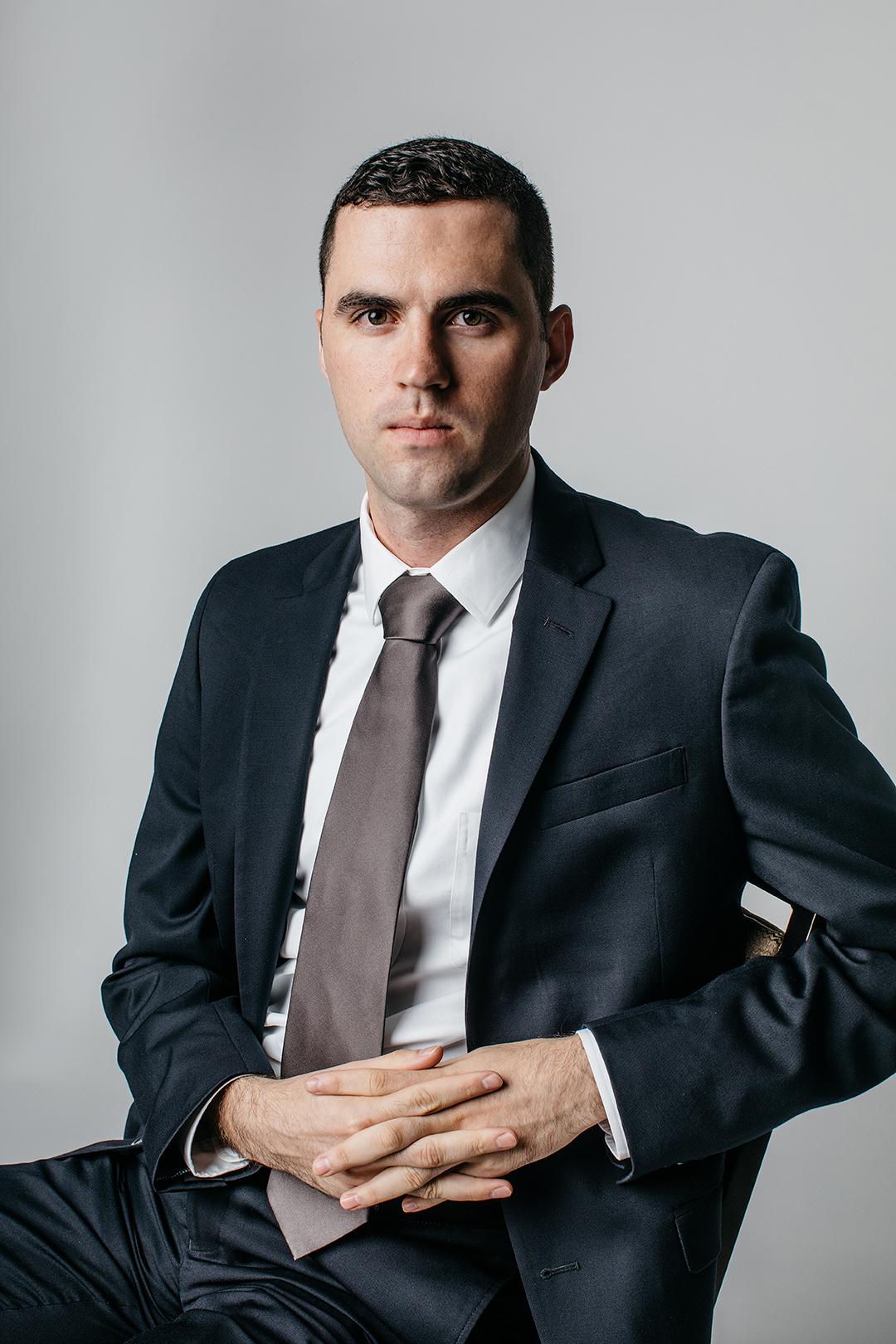
At the start of his time in Albany, Patrick Orecki wanted to get a sense of the different facets of state government. Eventually, he settled on studying public finance. “You begin to understand just how crucial the budget is to developing public policy in New York state,” he says. “So much of the government operates through the budget process.”
Not long after he got his start in government, Orecki took a position with the Citizens Budget Commission, a nonpartisan research and advocacy organization. “You get an opportunity to dive into some really challenging and dynamic public policy issues, and in doing so, you learn an immense amount from the outside,” he says.
Orecki’s experience within government gave him an understanding of the different dynamics at play, which now allows him to better monitor not just the legislative process, but how various programs get implemented after the fact as well. He relishes the opportunity to look beyond the immediate impacts of enacting legislation.
One major project that Orecki has been able to look at from both the government side and with the CBC has been the Medicaid redesign, which he considers to be one of the most rewarding projects that he has been involved in. “To be able to advocate for public policy and public finance practices that will benefit New York state and New York City in the long term is really one of the areas that excited me,” he says.
Kassandra Perez-Desir
Vice President, Bolton-St. Johns
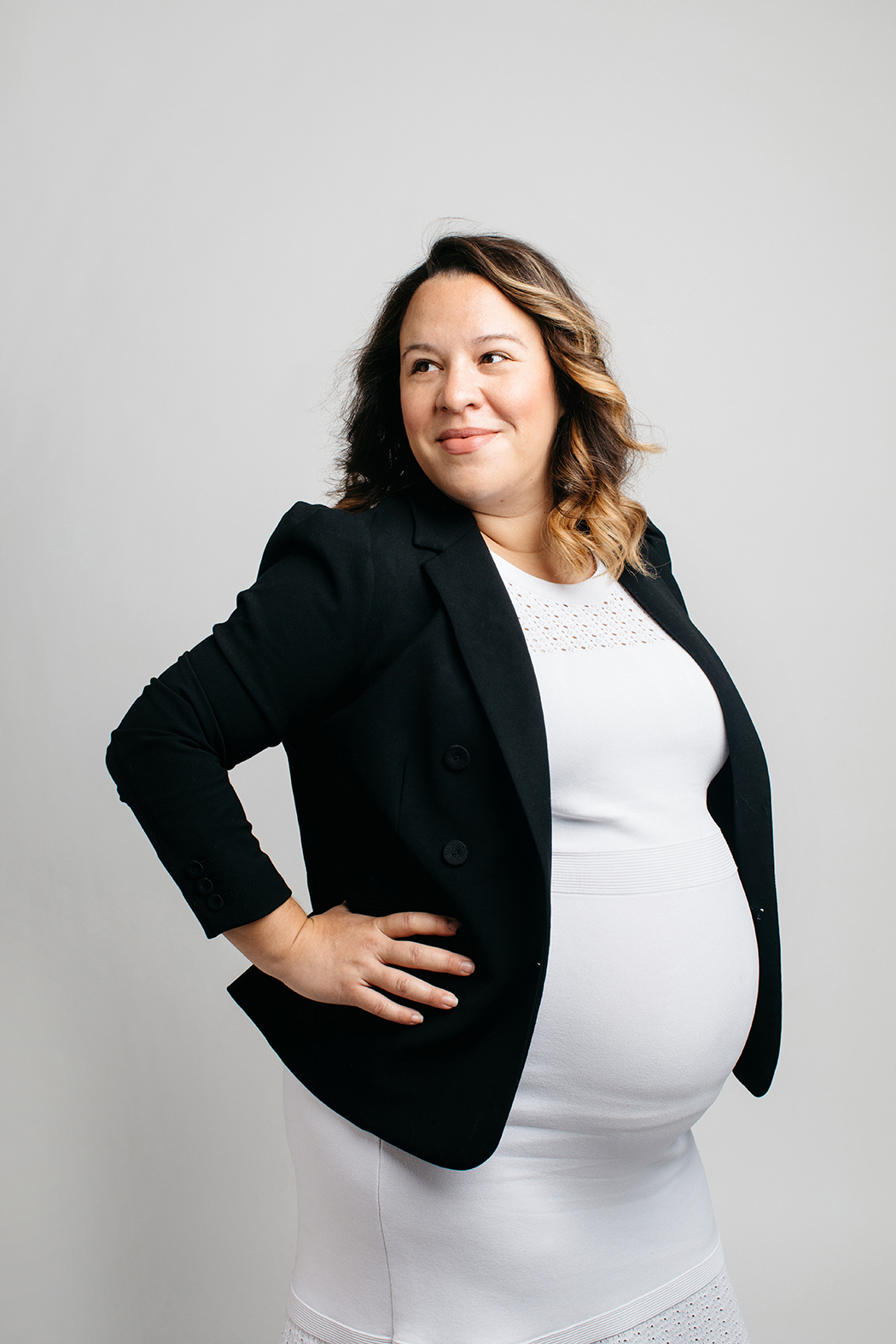
When Kassandra Perez-Desir was 12 years old, she thought she wanted to become a prosecutor. She remembers the precise moment when she made this decision, while watching the tense courtroom scene in the 1992 movie “A Few Good Men” – and hearing Jack Nicholson shout at Tom Cruise: “You can’t handle the truth!”
But after she took an internship with the Assembly during her junior year at St. John’s University, Perez-Desir shifted course. When she enrolled at New York Law School a couple of years later, she chose a career path that would prepare her to work with city agencies. “The political bug bit me,” Perez-Desir says. “I realized that there was another path outside of practicing law.” Perez-Desir says her work in politics opened her eyes to the reality that many people do not understand “the nuts and bolts” of government – such as who their local representatives are, when elections take place or how legislation is passed. She says she enjoys “bridging the gap,” whether between individuals and government or businesses and government.
One of the most fulfilling aspects of her work is “that ability to be able to see how you impacted someone’s life, in a really small way, for the better,” says Perez-Desir, who is now a vice president at the government relations and public affairs firm Bolton-St. Johns, where she works on labor, immigration and consumer affairs, among other issues. “It makes you feel that your energy is being put in the right place.”
Bronce Perez Matos
Special Assistant to Executive Director, New York State Justice Center for the Protection of People with Special Needs
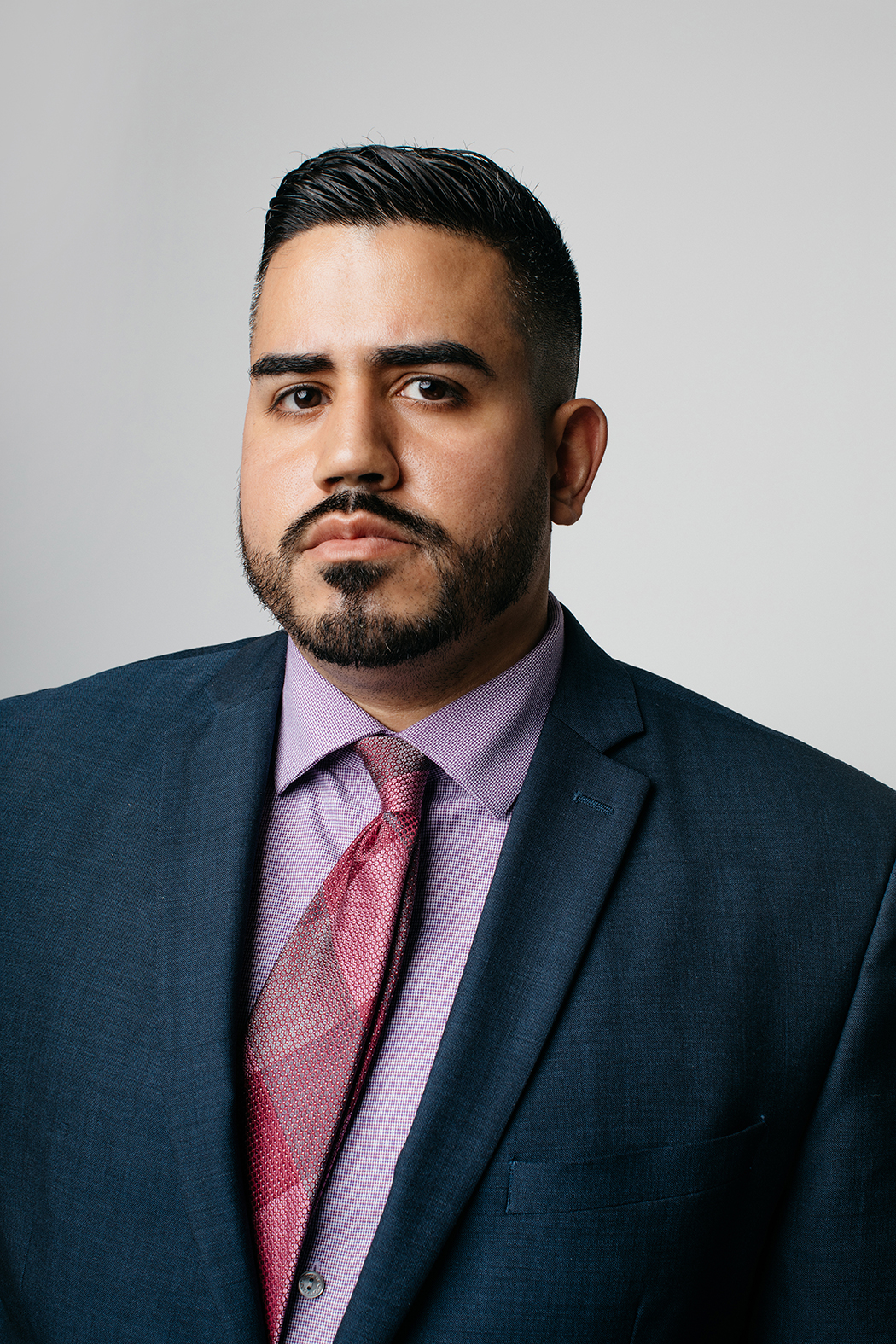
When Hurricane Maria hit Puerto Rico, it shook Bronce Perez Matos, even though he was more than 1,600 miles away in New York. Perez Matos was born and raised in Brooklyn, but he has roots in Puerto Rico. Seeing the storm’s devastating impact inspired him to join the New York Guard, a volunteer emergency management force.
“After Hurricane Maria hit, I realized that I want to be more involved somehow,” he says. “I wanted to basically just give back in a sense, to help out in any way.” Perez Matos is doing a week and a half of training so he’ll be ready to pitch in during any emergency with planning, coordination and logistics. That’s similar to what he does every day at the New York State Justice Center for the Protection of People with Special Needs, the agency that protects New Yorkers with special needs from abuse and neglect. When New Yorkers have trouble getting an assistive technology device that would allow them to attend school, or live at home, Perez Matos jumps into action, helping to provide funding and supporting them through the process. “It’s a great feeling to make sure that someone gets the assistance they need, just to feel like they’re part of the community again, or even just pursue an education,” he says. Perez Matos loves Albany – especially the access to the outdoors: “Going to the Adirondacks, camping, skydiving, skiing and all the great things up here that you can’t find in the city.”
Leanne Politi
Senior Producer, "Capital Tonight"
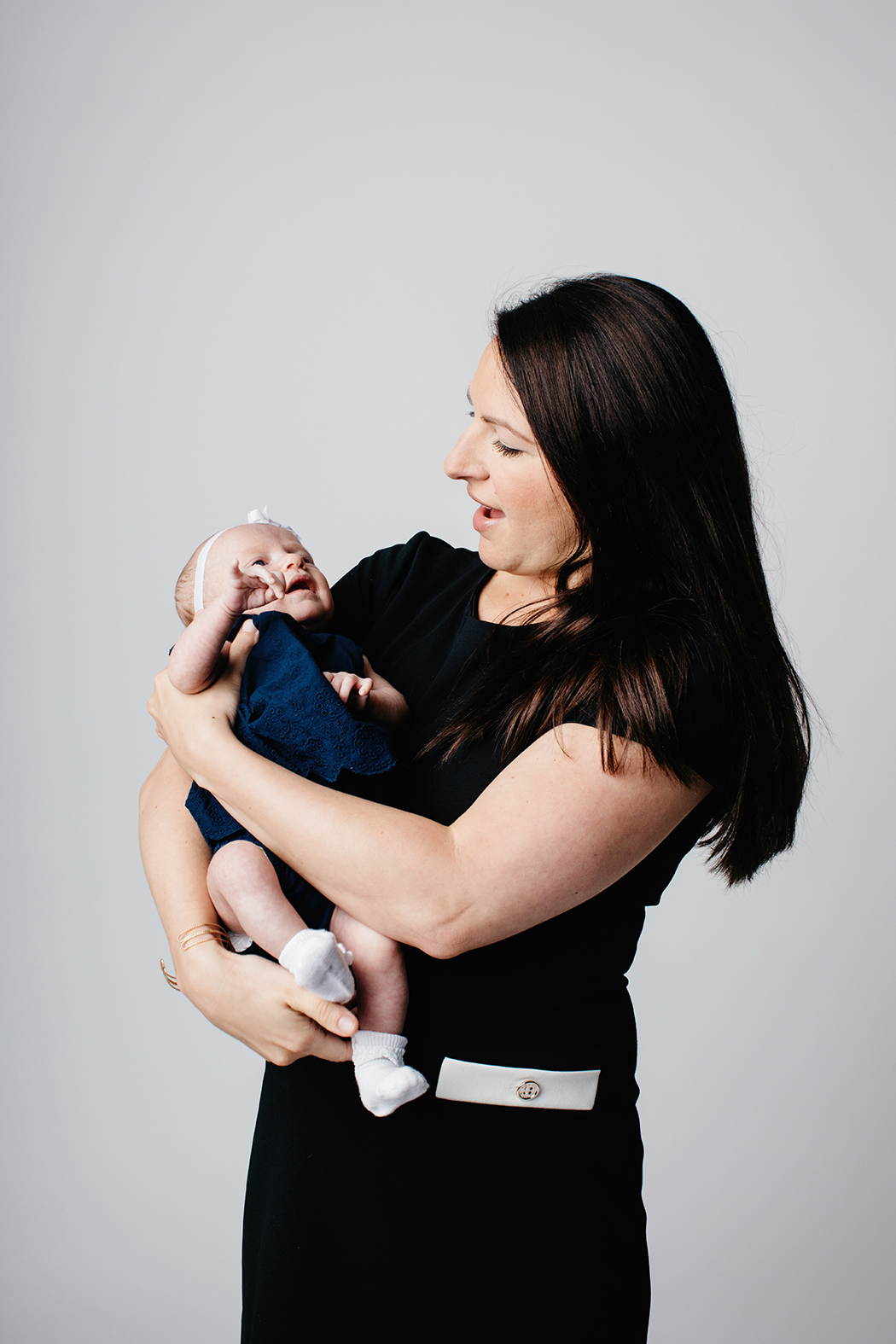
Political debates on “Capital Tonight” are as much of a campaign season tradition in New York as Wilson Pakulas. But Leanne Politi, the show’s senior producer, will be missing most of them this year. She’s got her hands full with maternity leave. “Being a mom is the hardest job ever!” she says. “The hardest day at work I’ve ever had, this trumps that by far. But it’s awesome.”
Politi is spending the days with her daughter Noelle, born on June 7, taking leave from the nightly political TV show where she’s worked for five years. In that time, her station has gone through three names – from YNN to Time Warner Cable News to Spectrum – but has never lost its influence in state politics.
And with the president’s attacks on the media, combined with staffing cuts at major outlets, Politi said, “Now it just seems more critical than ever to support local news.” Politi helps the show run every night, booking guests, writing scripts and connecting with viewers on social media. There are always elected officials on set, but Politi doesn’t mind the occasional quirky segment – like the conversation over whether a hot dog is a sandwich. “There’s so much going on at the Capitol,” she says. “You never know where the conversation is going to go.” After years covering politics, marrying into the Politi name felt like destiny. “Oh you know,” she laughs, “working on my brand.”
Caitlin Rooney
Capital Region Director, U.S. Sen. Kirsten Gillibrand
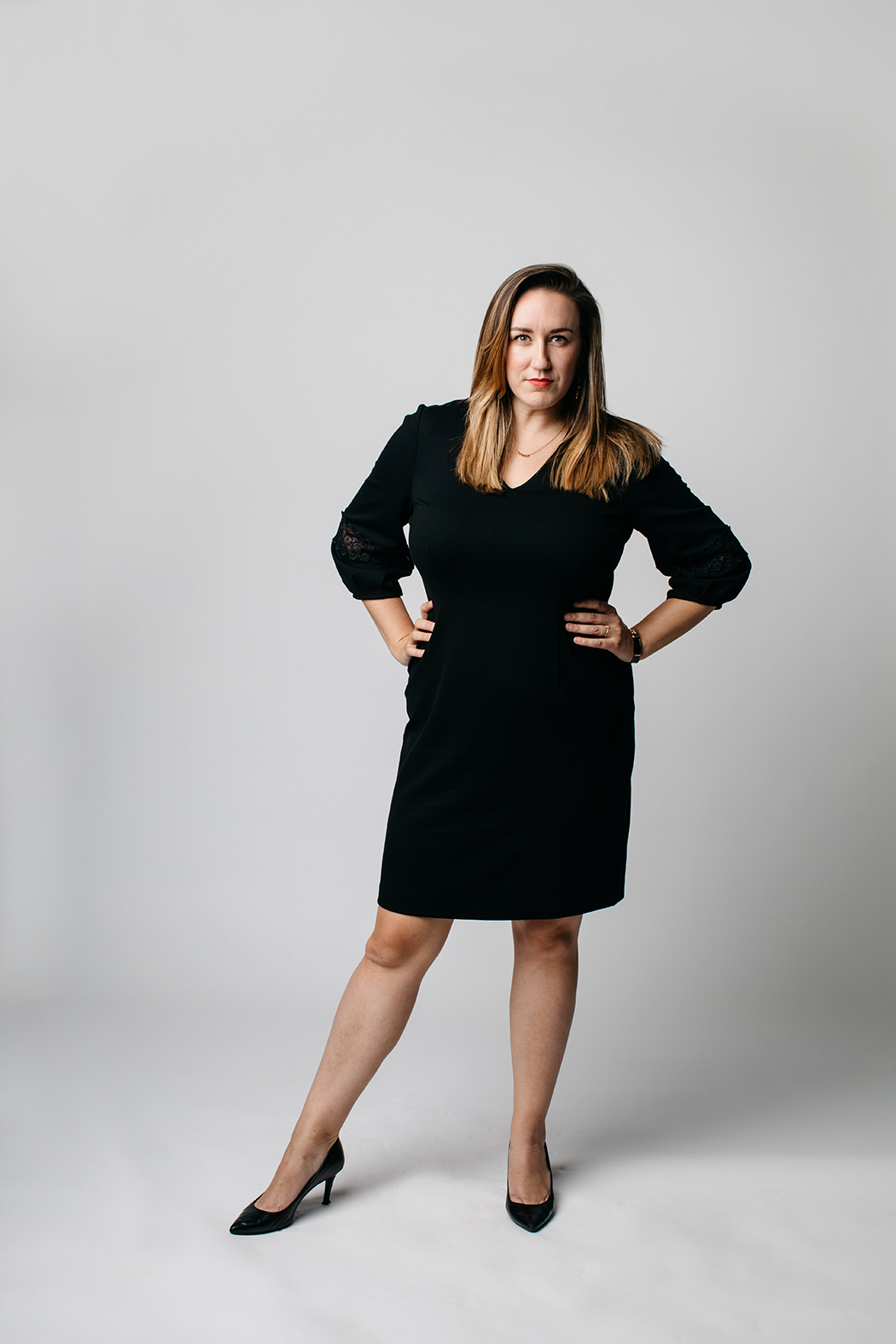
Like her boss, Caitlin Rooney has deep roots in New York politics. Rooney’s father was a staffer for an upstate congressman in the 1980s. The Troy native started out interning for Rep. Paul Tonko, and later worked on Hillary Clinton’s 2016 presidential campaign and for the state Department of Labor.
Now, she is the Capital Region director for U.S. Sen. Kirsten Gillibrand, which involves coordinating with local elected officials in 11 counties and helping constituents who need assistance. “I spend a lot of time talking with folks in the community, hearing what their issues are, and making sure that what we’re doing helps to mitigate some of those issues,” she says.
Though Rooney is a New York native, she is particularly proud of the work she did over the course of several months as a field organizer for Clinton’s campaign in North Carolina. Despite Clinton’s loss, Rooney saw a silver lining in having helped Roy Cooper narrowly defeat a Republican incumbent to become governor. “I’m excited to be a part of a group of folks under the age of 40, because young people right now are going to be the thing that helps to usher in a new era of progressivism. And that engagement from people that are young voters, first-time voters, that’s really going to be the thing that’s going to help turn the tide going forward,” she says. “I’m excited to be part of a group of people that have dedicated their day to day to helping to move that needle.”
Zoe Salzman
Partner, Emery Celli Brinckerhoff & Abady LLP
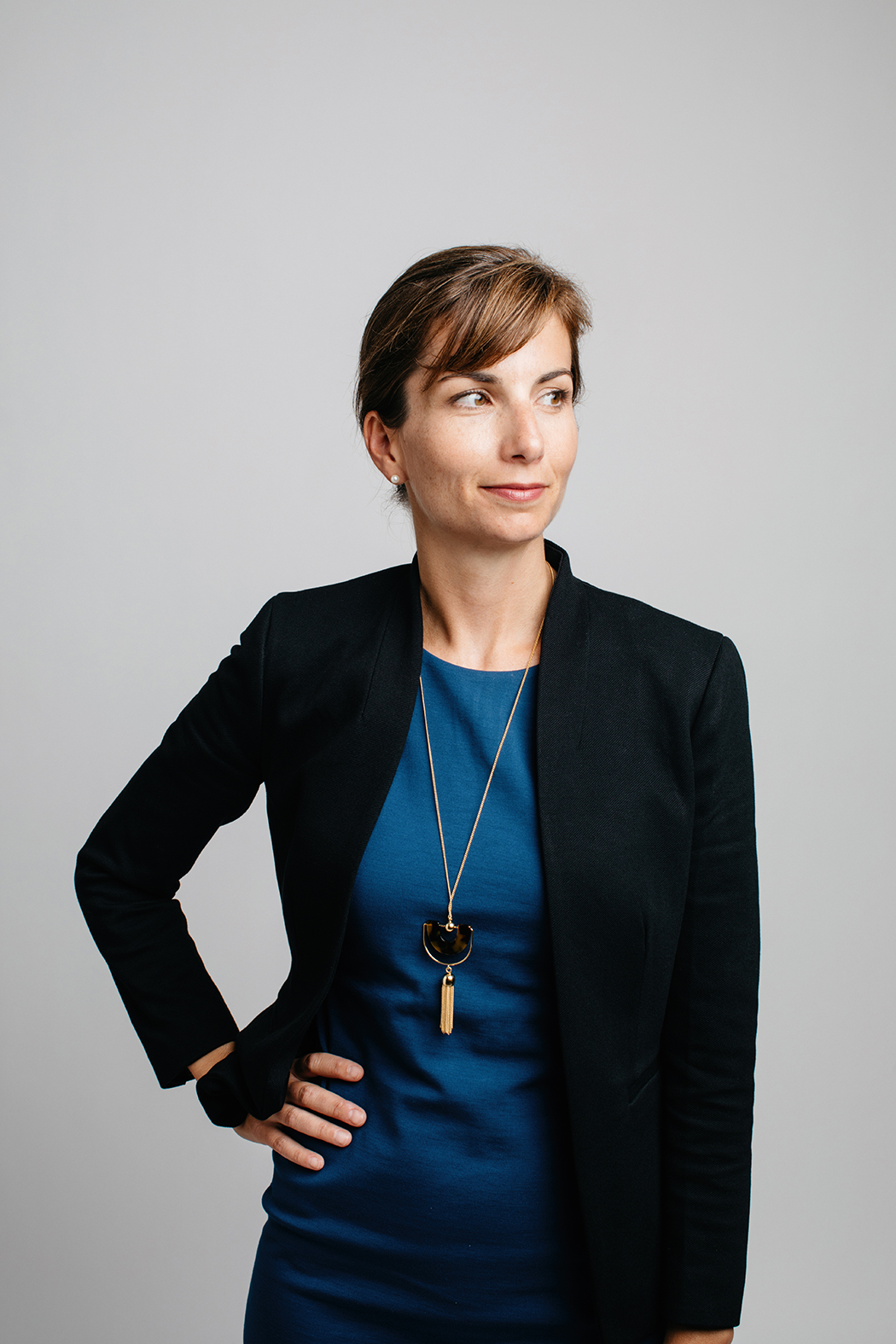
Inside Zoe Salzman’s office at Emery Celli, Brinkerhoff & Abady in New York City is a poster that reads, “Community Saves Cooper Union.” It’s a gift from a former client, and also a reminder of the longest argument she has ever delivered on.
“That was a real turning point for me professionally,” Salzman says of the case in which she represented the Committee to Save Cooper Union in a lawsuit against the legendary art and engineering school over its decision several years ago to begin charging tuition. Salzman argued that the school’s decision violated the principles of the trust set up by school founder Peter Cooper – and won the case. “I get to work on cases that I’m really passionate about,” Salzman says, adding that she enjoys working on a mix of commercial and civil rights litigation. She might go from working on a complex commercial dispute in the morning to working on a sexual harassment or prison abuse case in the afternoon.
Salzman, who loved debating and theater as a child, says she knew from about the age of 9 that she wanted to become a lawyer. And by the time she entered law school, she had decided she wanted to become a trial lawyer and litigator.
While she was initially interested in international human rights, she says the “diverse docket” she has now is ideal for her skill set. “It keeps you sharp,” she says. “It’s thinking really creatively about legal problems.”
Kari Siddiqui
Senior Policy Analyst, Schuyler Center for Analysis and Advocacy
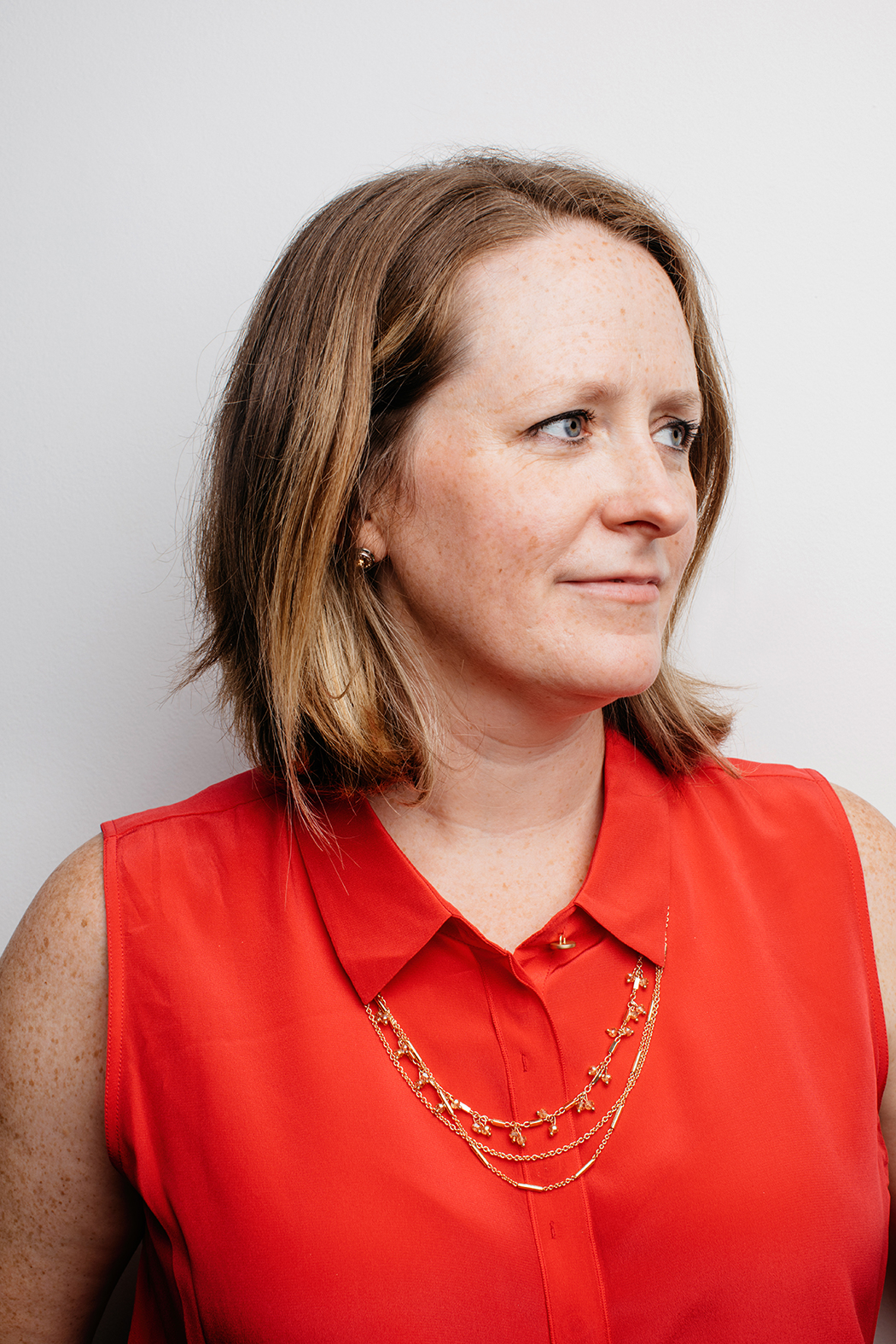
Kari Siddiqui studied abroad in Spain while earning her bachelor’s degree in Romance languages at the University of North Carolina at Chapel Hill. A few years later, she put her Spanish language skills to use when she moved to Nogales, Arizona, to work with grass-roots organizations on the U.S.-Mexico border.
Working with organizations that assist at-risk youth and incarcerated women was “eye-opening,” Siddiqui says. The experience sparked her interest in learning how to effectively run nonprofits, and she enrolled in a master’s in public administration program at Portland State University. Initially, Siddiqui had been interested in doing direct work – such as running a foster care agency or working for an aid organization – but her career path shifted course after a professor encouraged her to consider policy work instead.
“When you work in public policy, you can really effect bigger change,” she says. “As laws and policies change, and hopefully change for the better, you know and you hope that that change is having a broader impact.” Siddiqui is now a senior policy analyst at the Schuyler Center for Analysis and Advocacy, where she focuses on promoting policies that strengthen families and keep families together whenever possible. One such initiative, Children Need Amazing Parents NY, is part of a nationwide movement to place children in family-based foster care, rather than placing them with foster parents who are not relatives. “The idea is that kids do better when they’re in a family setting,” she says.
Ryan M. Silva
Executive Director, New York State Economic Development Council
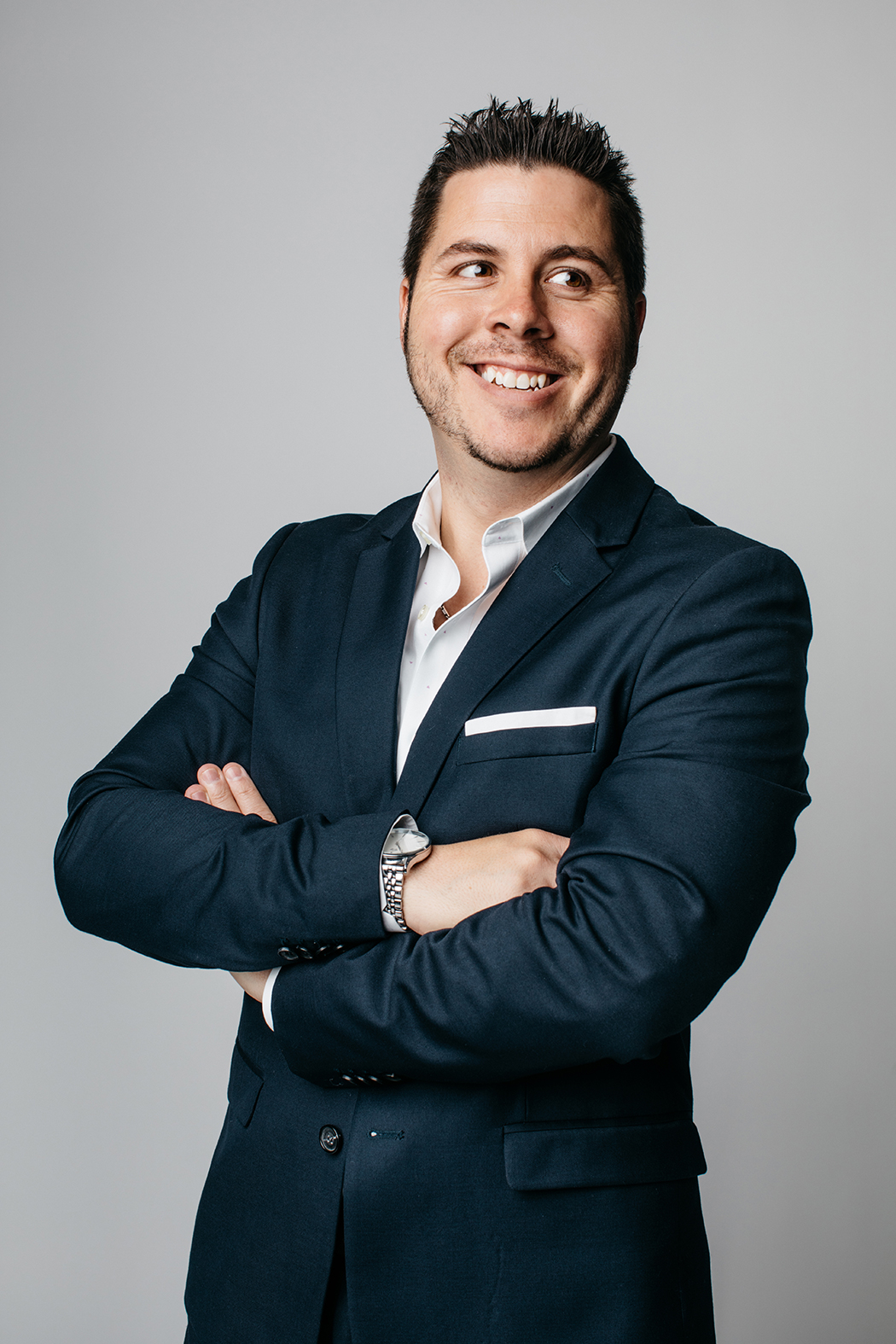
Ryan M. Silva came to the Albany area from New Hampshire to play baseball at The College of Saint Rose. After graduation, he stayed for another reason – helping businesses, first with the Rensselaer County Regional Chamber of Commerce.
“Once I kind of got involved in the work of the chamber world, which was small businesses, helping them identify resources, helping them grow their companies, helping them network and build relationships with other folks in the business community … it was something that I really enjoyed and was very passionate about,” he says.
His next role was deputy director of the state’s regional economic development councils. “I got a great understanding of the different economies in the different parts of the state, the differences in opportunities that existed in the North Country versus Western New York, versus New York City, and built relationships … with businesses, with economic development professionals across the state,” he says.
As executive director of the New York State Economic Development Council, he now sees opportunities for his organization to take the lead in helping grow the economy across the state. He is proud that a year into his role, the organization’s membership has increased 25 percent. As a statewide organization with a staff of two people, he spends a lot of time on the road, but makes time to be there for his three children. “It’s a difficult balance,” he says, “but family life is extremely important to me.”
Michelle J. Stern
Executive Director, New York State Academy of Trial Lawyers

In law school, Michelle J. Stern says she was one of those “weirdos” who didn’t really want to practice law. While she did find it rewarding to work with individual clients and have a successful case, she found that what she really liked was the broader impact of working on the state level and being able to create change for everybody at once.
Stern, now the executive director of the New York State Academy of Trial Lawyers, says, “It was a nice spot for me to go from law school to the academy because it was a good sort of mix of skills and let me sort of use my law degree but enabled me to do so in a way that was more focused on statewide change and advocacy.”
It hasn’t been easy to recruit new members and expand, she says, but she is proud that the group has grown from about 100 members when she started in 2005 to more than 2,600 members today. She has also led the group as it spearheaded an effort to have a greater number of bar associations do more vetting of state Court of Appeals candidates.
A Westchester native, Stern says she now “bounces around” between the group’s offices in Albany and Brooklyn. “Because we’re a statewide bar and I’m all over the place all the time,” she says, “that also gives me a little bit of flexibility to be home with my kids on any given day if I really need to.”
Andrew Title
Senior Director, State Government Affairs, Greater New York Hospital Association
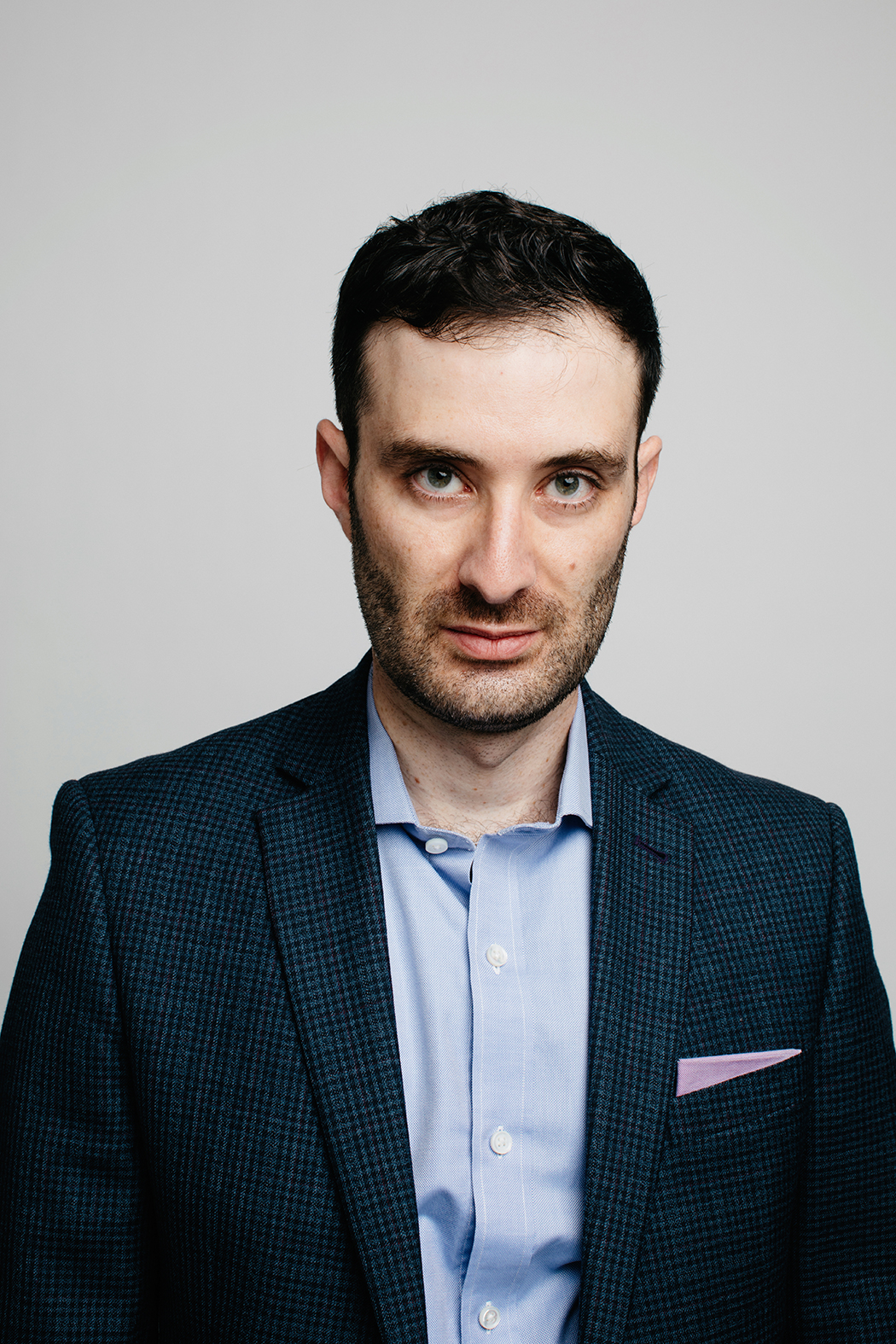
Andrew Title has spent time in Washington, D.C., working as a legislative assistant to a lobbying firm after former President Barack Obama was first elected. The New Jersey native has also worked for a magazine and spent time outside the country teaching English to children in Madrid.
But now, having worked for the Greater New York Hospital Association for four years, he’s been charmed by New York. “Politics in New York are just a little zanier and crazier, although I guess that’s changed a little bit with what’s going on Washington since the last presidential election,” he says. “But I think that New York in a lot of ways is even still more interesting. Just the way that members of the Assembly, the Senate, and the City Council are just, I think, much more multicultural and much more outspoken and have different perspectives.”
Title faces the challenge of understanding complex health care policy and translating it clearly for legislators. He spends half his time in Albany, especially during budget season and at the end of the session, and spends the other half focusing more on city issues and planning future work. Title spent a lot of time this year campaigning to return money to school-based health centers. Last year, the state cut $4 million from these centers, which are physician-staffed clinics that offer primary care for students in underprivileged areas. The campaign was successful in returning $3.8 million to the health centers in this year’s budget.
Latrice Monique Walker
Assemblywoman
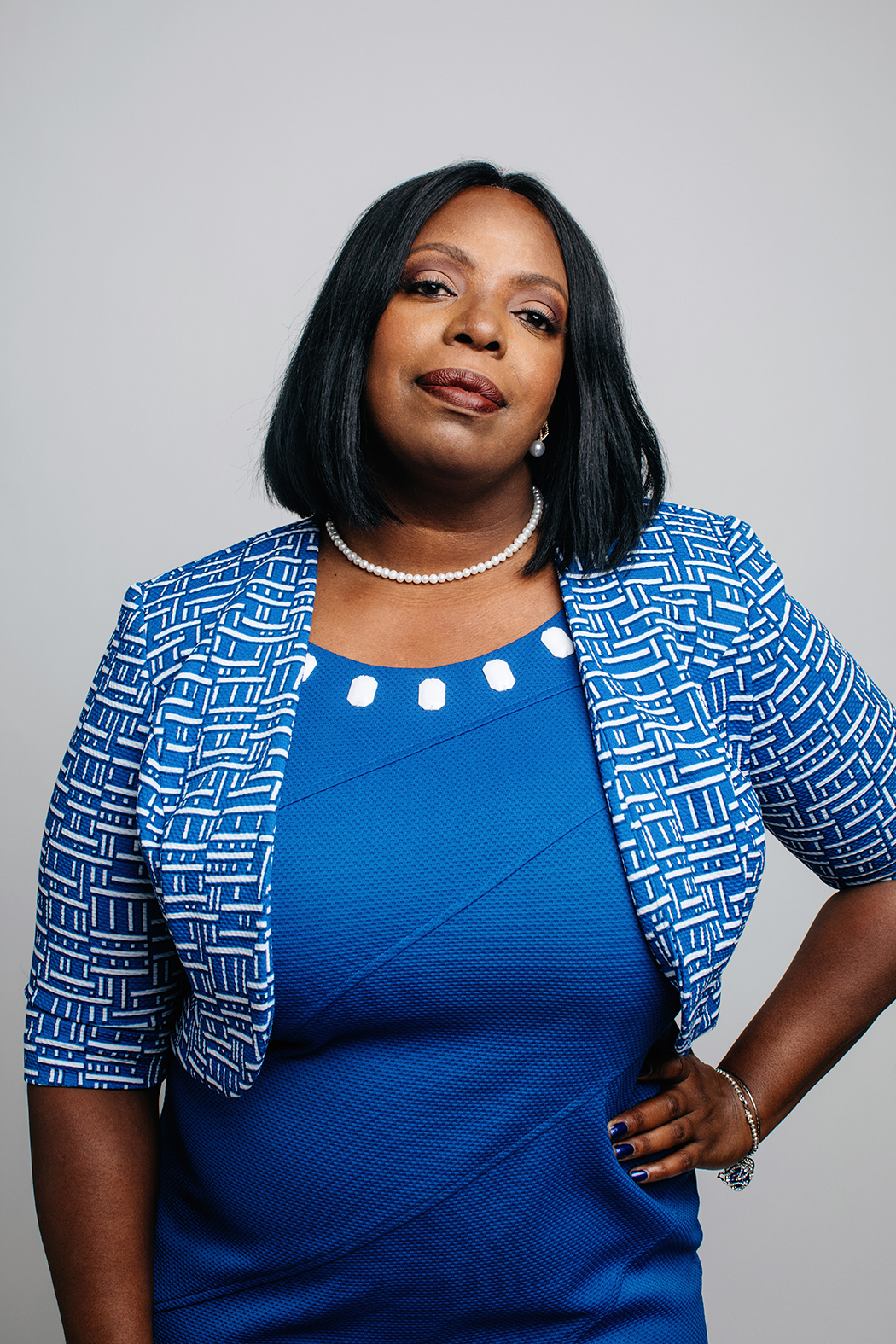
Assemblywoman Latrice Walker grew up in NYCHA’s Prospect Plaza Houses, which were torn down as part of a plan to build new housing in its place. “They came to everyone and gave them this promise of returning to this new community that was going to be built up with townhouses … and everything was going to be beautiful and brand new,” Walker recalls. But the new development was never built, leaving Walker’s mother devastated.
“My mom was forced to sign these documents. She had an eighth-grade education, no formal high school diploma or college, (and) was expected to read this legal document,” Walker says. “I remember her saying to me, I never want to see this happen again to any other families, and I should make sure to go to law school to prevent this,” Walker says.
So after college, she studied law at Pace University, starting out in entertainment law, then getting back to her Brooklyn roots as counsel to Rep. Yvette Clarke. When her Assembly seat opened up, she jumped in late – and won.
“One night, I couldn’t sleep,” she says. “I laid in bed and said to myself that if I don’t run for this seat that I could never live with myself. That this is a community that raised me, it poured everything into me, it gave me the perspective that I had, it made me the lawyer that I am, and it’s the least that I could to give to a neighborhood that gave me so much.”
Vivian Wang
Albany reporter, The New York Times

Vivian Wang found herself in a courtroom quite often this year. But that’s just life for a Capitol reporter in New York. “It’s been a good Albany primer, as somebody who’s new to the Capitol this year,” Wang says. “Covering all the trials has been a good way to learn about how things work and who are the key players.”
Wang started as a general assignment reporter on the Times’ metro desk right after graduating in May 2017. Once the legislative session began in January, she headed to the Capitol to see what she could contribute – an Albany rookie working among some reporters who have covered state government for decades. “I obviously wasn’t going to compete with any of the other reporters on the level of institutional knowledge, so I had to compete with what I could bring – a set of fresh eyes,” Wang says. “And also a fresh perspective. Because I am young, I am a woman, not necessarily who’s typically been reporting on Albany.” That perspective feels even more important as the country confronts sexual harassment in a new way. Wang felt strongly about the #MeToo movement, and was proud of her piece profiling three women who made complaints against state officials, while finding there was no clear procedure to report and discipline sexual harassment. Her first year in Albany was challenging, but one major obstacle remains: getting through Robert Caro’s 1,300-page “The Power Broker.” “Did not finish it,” Wang says. “But it’s still on my list.”
Jon Weinstein
Director of Communications and Senior Advisor to the Chairman, Metropolitan Transportation Authority
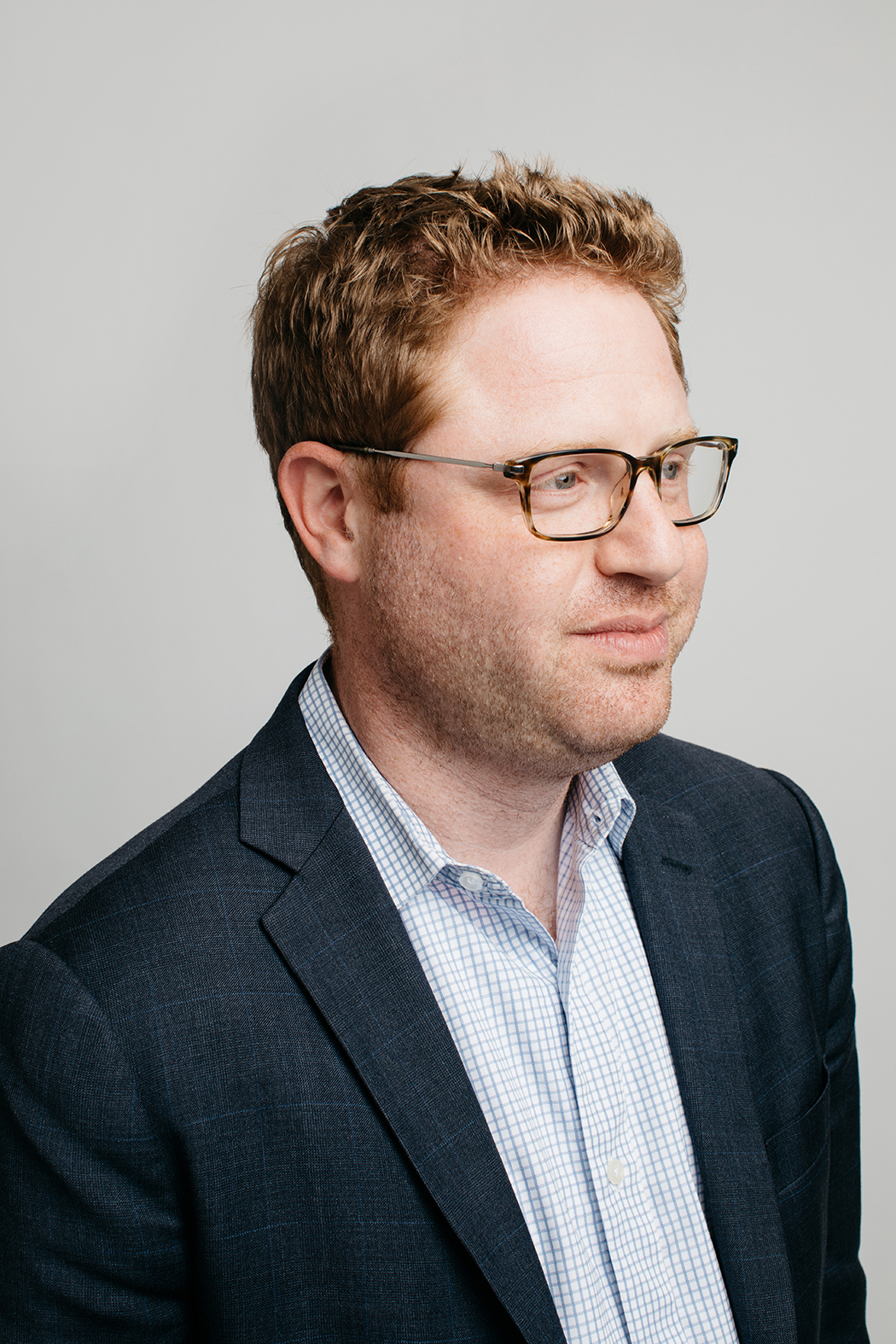
Jon Weinstein is a subway evangelist. Not the kind that preaches about Jesus in a crowded train – his job, explaining and defending the Metropolitan Transportation Authority, may actually be more difficult than converting tired straphangers to Christianity.
No subway conversion was necessary for Weinstein. “At the risk of sounding like an absolute geek, growing up I memorized the Ronkonkoma train line,” he says. “I’ve always been fascinated.” He grew up near the Hicksville Long Island Rail Road station, the son of a subway commuter and the grandson of a transit authority employee. The next generation has already caught on – Weinstein takes his 3-year-old son Gavin for subway rides on weekends. “He just wants to ride the subway for the sake of riding the subway,” Weinstein says.
Most New Yorkers, however, ride the trains, subways and buses in order to get somewhere, and with constant complaints of delays and poor service, Weinstein admits that being the voice of the MTA can be a headache sometimes. “You just keep plugging along,” he says with a laugh. But he handles the public’s constant need for information with understanding and grace under pressure – skills he honed as a news reporter for NY1, where he worked for seven years. A switch to public relations eventually led him, last October, to the authority he once reported on. “If you like transportation, and you want to be in the middle of fixing this place, why not now and why not here?” he says.
Correction: The process of using vacant property for new development is "urban infill." Jeffrey Mirel's profile originally misquoted him.
NEXT STORY: The 2018 Albany 40 Under 40


